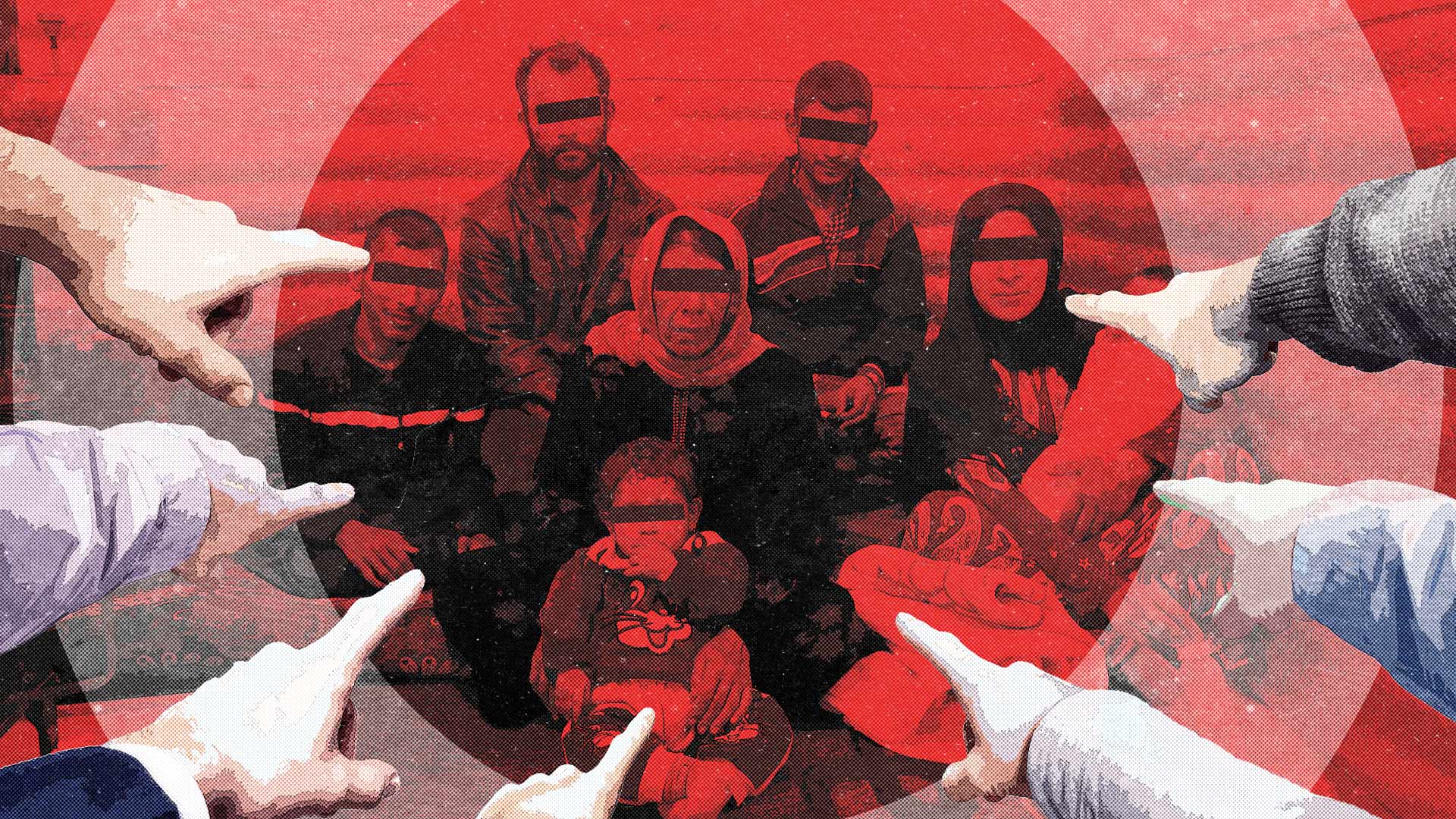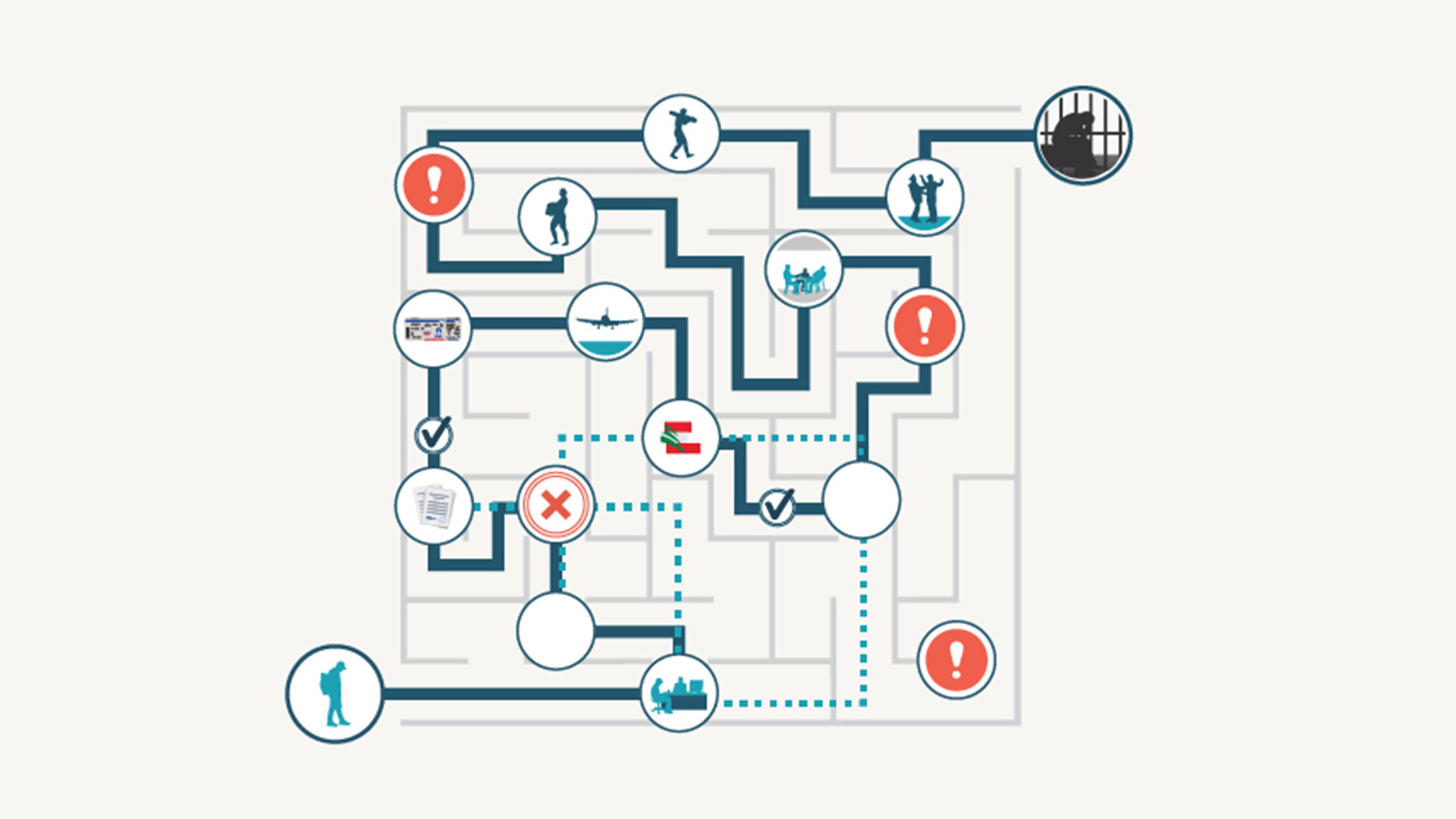Lebanon’s healthcare system is in dire straits as highly skilled medical workers abandon the country in droves, leaving hospitals and clinics struggling to meet demand. More than 20 per cent of nurses and 40 per cent of doctors have left the country since 2019, according to Lebanon’s Ministry of Public Health. This mass emigration is one of the most significant challenges the ministry outlined in the recently published Lebanon National Health Strategy – Vision 2030.
While the scale of the healthcare crisis is dramatic, medical personnel shortages are not unique to Lebanon. Indeed, countries around the world are trying to figure out how to keep their hospitals sufficiently staffed to meet patient needs, which often takes innovative shifts in perspective.
Turkey, for instance, saw more than 3 million Syrian refugees enter the country between 2011-2016, putting a massive strain on the Turkish healthcare system. To turn a problem into a solution, the Turkish Ministry of Health established the systems necessary to retrain and accredit Syrian healthcare personnel to work in Turkey. This has led to thousands of Syrian doctors and nurses today working in Turkey, providing care for both refugees and the wider Turkish population.
Lebanon, which currently hosts 1.5 million Syrian refugees and almost half a million Palestinian refugees, could similarly help cure its critical healthcare staffing shortages by allowing Syrian and Palestinian doctors and nurses to work here. Instead, however, as The Alternative explores in this report, prohibitive Lebanese laws and attitudes continue to bar these medical workers from being legally able to care for a population that evermore desperately needs it.
Healthcare in Lebanon: From Destination to Devastation
Before Lebanon’s economic collapse began in 2019, the country was often referred to as “the hospital of the Middle East” for its high healthcare standards that attracted medical tourism from around the region and beyond. Yet, the system faced various challenges, including high out-of-pocket expenses and uneven distribution of healthcare resources.
Since 2019, the financial crisis has significantly impacted Lebanon’s healthcare system. Notably, the steep devaluation of the local currency – which has lost more than 95 per cent of its value in three years – has left hospitals and medical centres struggling to secure medical supplies and equipment, while the value of healthcare workers’ salaries and benefits has plummeted.
According to public health physician and epidemiologist Jade Khalife, the situation has driven many Lebanese doctors and nurses out of the country in search of better professional opportunities and working conditions.
“I personally know a few people who told me they can’t afford anymore to drive to their hospital and return,” Khalife told The Alternative. “It’s not only that you’re losing in the numbers, it’s also losing the quality. You have people like heads of departments leaving … and more experienced doctors and nurses.”
The head of the Lebanese Order of Physicians, Professor Youssef Bakhash, told The Alternative that 3,500 doctors had left the country since the start of the crisis.
“We are now suffering from a big problem. We are missing several specialities, from pediatric surgeons to anesthesiologists,” he said.
The situation has created a vicious cycle whereby the shortage of doctors and nurses exacerbates the burden on the remaining staff, making it even more difficult to attract and retain healthcare professionals in the country.
At the same time, the country’s economic collapse has spurred a rapidly deteriorating humanitarian situation and a decline in the general health of the population.
Indeed, between 2019 and 2021, Lebanon’s life expectancy at birth declined by more than 5 per cent, material deaths almost tripled and routine childhood vaccinations dropped by 31 per cent. Diseases such as cholera, previously almost non-existent in modern-day Lebanon, are also making a resurgence.
This means there is increasing demand for healthcare services at a time when Lebanon’s “extremely strained health system is becoming unable to cope and is under threat of collapse,” according to the Ministry of Public Health.
Unable to Offer Care
Due to long-standing prohibitions, it is difficult for Syrian and Palestinian doctors and nurses to practise legally in Lebanon. Lebanon’s Labor Ministry legally restricts the work of Syrian refugees to only three sectors – cleaning, construction and agriculture. Despite the ministry recently removing restrictions that had barred Palestinian refugees from working in more than 30 professions, the syndicates governing those sectors, including medical fields, have maintained many exclusionary policies.
Non-Lebanese doctors wishing to work in the country must be a citizen of a country with a reciprocal, bilateral agreement with Lebanon, according to the Order of Physicians. That is not the case for Syrians, with Bakhash noting that Lebanese doctors face equivalent bureaucratic steps to work in Syria. For Palestinians, without an officially recognized state of their own, bilateral labour agreements are not possible. Among other requirements, Syrian and Palestinian doctors need to have their medical degrees and qualifications recognised by the Lebanese state, authorisation from the Ministry of Health, and be part of the Order of Physicians.
Jude, who preferred not to share her last name due to an ongoing residence application, has a degree in ophthalmology from the University of Aleppo and conducted eye operations for a year and a half before coming to Lebanon. She told the Alternative she tried many avenues to practise her profession legally in Lebanon until giving up.
“I went to try to join the Syndicate of Physicians during the summer of 2021 but, as a Syrian, they told me it would cost me 500 million LBP, the equivalent of US$333,000 at the rate of the time,” she said. “So now, like many others, I’m trying to apply to work as a medical professional in Germany instead.”
Professor Bakhash told The Alternative he had “no idea” about the current cost for Syrian and Palestinian doctors to join the syndicate.
According to the syndicate’s website, the affiliation fee for a Lebanese doctor that meets all the requirements is 3 million LBP. There is no information about the price for foreign doctors, including Syrians and Palestinians.
While Syrian and Palestinian students can study medicine in Lebanese universities, medical degrees are vastly more expensive than most and obtaining one does not guarantee the right to practise medicine in Lebanon.
Psychology student Aya Rdayni said being Palestinian drastically limited her professional prospects, despite studying the same curriculum as her Lebanese classmates at the Lebanese University.
“After university, I don’t know if I’ll be able to work because I’m Palestinian and they won’t give me a license to practise my profession,” she told The Alternative. “I won’t be able to work in Lebanon and open a clinic under my name. I hope to travel and work and open my own clinic.”
A Black Market for Doctors
A Syrian emergency doctor working in the Bekaa Valley, who did not wish to be named for fear of reprisals, said he practised illegally. As a Syrian, he cannot sign documents or write prescriptions. To avoid getting caught by Lebanese authorities, he said Syrian doctors worked under the name of Lebanese doctors or international volunteers, and usually for a much lower salary.
“They need us, but, at the same time, they don’t allow us to work. It’s just confusing,” he told The Alternative, adding that a fellow Syrian doctor had recently been caught and thrown in jail for a week.
Several Syrian doctors told The Alternative that they had offered Lebanese hospitals and clinics to work during the COVID-19 pandemic, only to be turned away due to bureaucratic processes.
Some Syrian medical professionals who are unable to work legally have opened illegal private clinics, which had led to, for example, a proliferation of Syrian dentistry offices in Shatila Palestinian refugee camp in Beirut’s southern suburbs in recent years.
Several doctors told the Alternative that there were many valid reasons why refugees in Lebanon preferred to be treated by a doctor from a similar background. A recent study in the Medicine Anthropology Theory journal highlighted the importance of refugee-to-refugee healthcare in situations of forced displacement. It notes that displaced Syrian healthcare providers working informally in Lebanon have established dynamic networks of care that are responsive to the everyday constraints of Syrian patients. These practices of care can inform more culturally appropriate and wider humanitarian programs and refugee health services and policies.
Professor Bakhash, from Lebanon’s Order of Physicians, told the Alternative that if informed of non-Lebanese doctors working illegally, his organization would inform the Lebanese Ministry of Public Health, which would be responsible for stopping them.
“We know that there are many doctors, especially Syrians, who are working illegally,” he said.
The Ministry of Public Health did not respond to The Alternative’s request for comment for this article.
Looking Ahead
Amid the country’s critical shortage of medical professionals, the continued barriers to allowing Syrian and Palestinian healthcare personnel from legally working in Lebanon appear nonsensical from a public policy perspective.
The question remains, however, whether the factors driving Lebanese medical staff away would do the same for their Syrian and Palestinian colleagues, even if the latter were permitted to work here.
“Why would it be OK to pay peanuts for a doctor or nurse from Syria?” asked Khalife. “The same bad working conditions that exist for Lebanese physicians and nurses will exist for Syrian and Palestinian physicians and nurses.”
Jude, however, said she saw things differently: “Yes, the salaries are low, but it’s better than not being able to work at all. We have a lot to give.”



